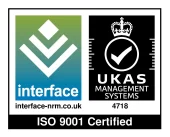In a world increasingly focused on sustainability, the importance of recycling and conserving valuable resources cannot be overstated. Copper, a metal known for its versatility and essential role in various industries, presents a prime opportunity for sustainable practices. Copper recycling not only reduces the environmental impact of mining and processing but also offers economic and ecological benefits. In this article, we’ll explore the significance of copper recycling in promoting sustainability and conserving precious resources.
The Environmental Impact of Copper Mining
Copper mining involves extracting the metal from ore deposits deep within the Earth’s crust. This process can have significant environmental consequences, including habitat disruption, soil and water pollution, and energy consumption. By recycling copper, we can mitigate the negative environmental effects associated with mining and processing new copper ores.
The Recycling Advantage
Recycling copper offers a plethora of advantages, both environmental and economic:
- Energy Conservation: Recycling copper requires significantly less energy compared to mining and refining new copper. These energy savings contribute to a reduction in greenhouse gas emissions and lessen our reliance on non-renewable energy sources.
- Resource Conservation: Copper is a finite resource, and recycling helps extend its availability. By reusing existing copper & copper busbar, we decrease the demand for new mining operations and contribute to the preservation of natural landscapes.
- Reduced Waste: Copper recycling diverts valuable material from landfills, reducing the burden on waste management systems and minimizing the release of potentially harmful substances into the environment.
- Job Creation: The recycling industry generates employment opportunities, from collection and processing to manufacturing products using recycled materials.
The Recycling Process
Copper recycling involves several stages:
- Collection: Copper items, such as wires, pipes, and electronics, is collected through various channels, including recycling centres, scrap yards, and electronics recycling programs.
- Sorting and Processing: Collected materials are sorted to separate different types of metals. Copper is then processed to remove impurities and prepare it for reuse.
- Melting and Refining: The processed copper is melted down and refined to meet industry standards. The resulting high-quality copper can be used in various applications.
Applications of Recycled Copper
Recycled copper finds its way into a wide range of products and industries, including:
- Electrical wiring and cables
- Plumbing fixtures and pipes
- Electronics and telecommunications equipment
- Renewable energy systems (solar panels, wind turbines)
- Transportation (cars, trains, aeroplanes)
- Construction materials (roofing, plumbing, structural elements)
Individual and Collective Impact
Copper recycling is a practice that individuals, industries, and governments can collectively embrace to drive sustainability:
- Consumer Choices: Choosing products made from recycled copper supports the demand for sustainable practices and encourages manufacturers to incorporate recycled materials into their products.
- Industrial Responsibility: Industries can adopt circular economy principles, prioritizing recycling and responsible sourcing to minimize their environmental footprint.
- Government Initiatives: Governments can promote copper recycling through policies, incentives, and regulations that encourage proper disposal, collection, and processing of copper-containing materials.
A Sustainable Future with Copper Recycling
Copper recycling is a powerful testament to the potential of sustainable practices in shaping a better future. By recycling copper, we reduce energy consumption, conserve valuable resources, and alleviate the strain on our planet’s ecosystems. As individuals, businesses, and societies collaborate to increase the adoption of copper recycling, we take a significant step towards ensuring a more sustainable and resilient world for generations to come.
Milly Edwards
Sales and Marketing Executive: Responsible for creating content for ILF's social media channels, website, print media and promotional work.








